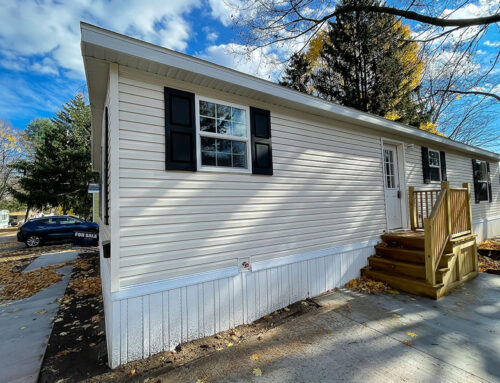Every property renovation comes with unexpected expenditures, and that’s especially true when it comes to renovating distressed properties here in NYC. Many of the new investors that I speak to are caught off guard by one cost in particular: construction debris removal and disposal. As part of the initiative to contribute zero waste to the landfills by 2030, New York has pretty tight policies on how house rehabbing waste can be disposed of—and it can add significantly to your investment project. There are definitely a few things you will want to be aware of before you begin your project so that you can budget smartly.
Renovation Project Size Matters
Whether you are doing a simple cleanout or a full remodel, you are bound to end up with some trash. If you have time and energy to very carefully plan, you might be able to get away with using the city services. But that’s not the case for most renovations. More than likely, it’s going to cost you to dispose of the debris, and what you end up paying will depend on the magnitude of your project.
If you don’t hire anyone to help complete the repair work in your investment home, today you can put up to six items (bags or bundles) of home repair debris or furnishings at the curbside for bulk pick-up. Items must be light enough to be lifted by two people and small enough to fit in a garbage truck. Generally, different types of construction debris are scheduled for pickup on specific days, so you will need to sort the items and plan ahead. And, you will need to follow specific rules for disposing of various materials. For instance, carpets and rugs should currently be tied into two-foot by four-foot bundles. In Brooklyn and Queens, which are currently quarantine areas for the Asian Longhorned Beetle, you must make an appointment with the Parks Department for safe removal. Even if you are in a hurry to clean up the property, you cannot bring your repair debris to the city’s waste disposal sites—so you’ll have to plan ahead and be patient.
For major construction or renovation projects with a hired contractor, any debris is considered commercial waste by the city. You will have to dispose of the debris according to city policies. That said, you have a few different choices at different cost levels. Here’s a quick rundown of the options you can consider.
- Hire a waste hauler. Construction debris waste haulers must be certified by the Business Integrity Commission (BIC), which maintains a list of approved service providers. The BIC sets maximum rates that private carters can charge you for waste removed. However, there is no maximum rate set for e-waste or construction debris so you’ll want to shop around and compare services.
- Rent a dumpster. Private dumpster companies can deliver a container and pick it up when it’s full. Costs for these services can range widely depending on how large of a container you need, but you can currently plan to add between $400 to $900 to your project costs for a single dumpster.
- Register as a self-hauler. If you don’t want to hire a company to handle your renovation debris, you can take it to a private transfer station yourself—but, you’ll need to register as a self-hauler through the BIC. The fee for registering is generally a whopping $1,000 though, so it doesn’t make sense to go this route unless you plan on disposing of renovation debris for multiple projects.
Of course, many renovation contractors can arrange for private disposal of renovation debris and roll it into your project cost. They may upcharge you for the service, but it will simplify the overall project management for your renovation and help you get your “For Sale” sign posted faster.
Tools for Planning Project Costs
As a real estate investor who’s bought, rehabbed, and sold numerous houses around New York over the years, I tell those who are just dipping their toes into the market that it’s critical to have the right tools for determining the cost of every project. There are a number of solutions out there but, in my experience, the most comprehensive and effective is the proprietary ValueChek™ software provided to HomeVestors® franchisees. It allows you to quickly itemize all repairs that a house needs and provides regionally-specific estimates of costs. Even better, you can customize project add-ons like construction debris removal so you have a clear idea of what the total cost of renovations will be. If you are ready to start approaching your real estate investments with more confidence that you are paying a safe price-point to the seller, get in touch with HomeVestors® today.
Each franchise office is independently owned and operated.
Photo Credit: Flickr CC user John W. Iwanski
Contact
"*" indicates required fields





